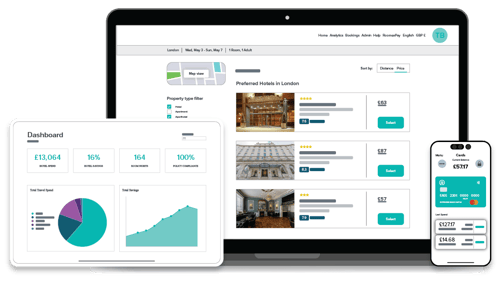Whether you consider it a perk or a necessity, business travel is undeniably an important part of our working lives. An overwhelming 90 per cent of professionals believe it’s valuable for business growth, whilst 79 per cent say it impacts their overall job satisfaction.
Even though the past year has put a dent in business travel, there are signs that the industry is starting to make a comeback, especially as workers return to the office and the roads.
However, with this comes new challenges and considerations, since the landscape has changed considerably over the past two years. Signaling a new era in corporate travel, now is the time to address new ways of working to futureproof your business.
If you are wondering where to begin, here are some key factors that businesses can consider when creating a business travel policy with employees at heart.
Duty of care
With a recent surge in remote working, businesses have had to review their duty of care, extending this to outside their office walls. This covers everything from employee wellbeing to equipping colleagues with the necessary tools for the job.
The same is true of business travel. Employers still have a legal and moral obligation to take care of colleagues when traveling for work. And in the light of recent events, this includes the all-important issue of being covid-secure.
A good place to start is with your industry body, regulator or government guidelines. For example, in the UK, the government has provided a set of guidelines for workers in the construction industry about staying safe in an outdoor environment. Corporate handbooks and HR policies should be updated to follow these guidelines regularly.
Employers also have a duty of care when it comes to reaching colleagues remotely, as well as having instant access to their whereabouts. Roomex offers a centralized system, that helps track past, present and future trips with its invaluable Workforce Tracker tool. The tracker is directly integrated with hotel stays, delivering a personalized real-time duty of care map to easily locate employees domestically and globally.
Clear and easy access to guidance
Businesses must make it easy and convenient for workers to access the latest regulations and guidelines about safety in (and outside) the workplace.
This means that a data officer or HR member should be assigned the role of updating information and sharing it with colleagues, as well as placing it on the company intranet. This ensures that all colleagues are aware of any important changes – especially in an ever-changing environment.
Respecting reluctant travelers
The absence of business travel has given us the time to reflect on its value. Nonetheless, it shouldn’t be a given that everyone feels comfortable commuting in the current climate.
As such, due consideration needs to be given to employee’s personal preferences in a way that supports their mental wellbeing. Google estimates that business travel may be reduced by 30 per cent in the long-term as a result of the pandemic, so businesses must adapt and be sympathetic to employee’s personal circumstances.
Necessity of travel
Business travel plays an important role in any organization, however we’ve all had to review what ‘essential travel’ really looks like. For some jobs, being on site is integral to its success, for others video conferencing will suffice.
In short, businesses must create a criteria that measures what type of business travel is necessary and find ways to plug the gap in its place.
New travel rules
Before the pandemic, it wasn’t uncommon for room-sharing and car-pooling amongst colleagues. However, despite its eco-credentials, this brings new challenges in 2022.
Businesses must prioritize workers safety above everything else. Every measure must be taken to mitigate the risk of Covid, with the following points considered:
- The risk of room sharing
- Appropriate numbers (how many people are needed on site at any given time)
- Car sharing suitability
- PCR testing on site and in the office (plus access to kits)
- Hotel and travel booking arrangements, as well as cancellations if required
- Availability of medical support, as well as food and drink for colleagues to easily access whilst away for work
In Summary
Travel plays a significant role in any business, whether it’s within the UK for in-person meetings, or abroad for conferences. However, there’s a careful balancing act, to ensure work needs are met against those of its employees. In order to achieve this, businesses must have a robust duty of care proposition, with employee welfare at its core.

February 2, 2022

